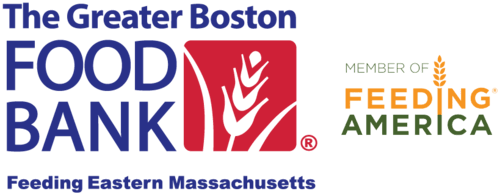Policy Priorities
State Policy Priorities
For the 2025-2026 legislative session, GBFB is leading two primary policy priorities and supporting several others aimed at promoting equitable access to food, strengthening the local food system, enhancing community health, fostering economic mobility, and ensuring affordable housing.
Massachusetts Emergency Food Assistance Program (MEFAP)
The Massachusetts Emergency Food Assistance Program (MEFAP) enables the four state food banks (Merrimack Valley Food Bank, The Food Bank of Western Massachusetts, The Worcester County Food Bank, and GBFB) to distribute nutritious food to community members in every city and town across the Commonwealth.
ASK: $55.5M in FY26 budget (Budget line item 2511-0105)
The Hunger-Free Campus Initiative
GBFB co-leads the MA Hunger-Free Campus Coalition, a statewide group dedicated to ensuring students at public universities and community colleges are not facing hunger as a barrier to successful college completion.
ASK: Co-sponsor HD. 2096 / SD. 1567 and include $2M in FY26 budget request.
Additional Priorities
Equitable Access to Food
- Healthy Incentives Program (HIP): the MA Food System Collaborative campaign aims to expand SNAP recipients’ ability to purchase fresh fruits and vegetables directly from farmers through full and permanent funding of the Healthy Incentives Program (HIP). ASK: $25M in FY26 budget (Budget line item 4400-1004).
- Special Commission on the Commonwealth’s Emergency Food Network: to create a special commission that examines the challenges that emergency food providers in the state face. ASK: Co-sponsor HD. 2378
- Supplemental Nutrition Assistance Program (SNAP) Replacement: to replace SNAP benefits stolen through electronic benefit transfer card skimming, card cloning or other fraudulent methods. ASK: Replace stolen benefits and co-sponsor HD. 2802 / SD. 1741.
Local Food System
- Food Security Infrastructure Grant: to sustain grant funding for physical infrastructure projects that enhance local food system connectivity and food security programs. ASK: Co-sponsor SD. 168.
- Fostering Agricultural Resilience: for Massachusetts to develop and maintain a plan for supporting agricultural, seafood, and food production in all emergency preparedness planning efforts to mitigate supply chain disruptions. ASK: Co-sponsor HD. 3621 / SD. 2144.
- Incentivizing Food Donation: to incentivize the donation of food from local farmers to nonprofit food distribution organizations. ASK: Co-sponsor HD. 2237 / SD. 834.
Community Health
- Food is Medicine Initiatives: to address the nutritional needs of individuals through medically tailored groceries and meals. ASK: support the Food is Medicine MA Coalition‘s programmatic and policy recommendations.
- Advancing Health Equity: to reduce health disparities by improving access and quality of care, in alignment with the Health Equity Compact‘s goals. ASK: Co-sponsor HD. 138 / SD. 1202.
Economic Mobility
- Cash Assistance for Families in Deep Poverty: the Lift Our Kids coalition aims to raise cash assistance grants to keep up with cost of living and until the maximum grant reaches half the federal poverty level. ASK: Support 10% increase to cash assistance grants and co-sponsor HD. 1353 / SD. 1818.
- Tax Relief: the Healthy Families Tax Credits Coalition aims to pass robust and inclusive tax relief for families with low incomes. ASK: Expand the state Earned Income Tax Credit (EITC) and co-sponsor HD. 3269 / SD. 1772 / SD. 1380.
Affordable Housing
- Real Estate Transfer Fee: the Local Option for Housing Affordability Coalition aims to create and expand affordable housing by adding a tax to the sale of homes above $1 million. This tax is then used to pay for affordable housing for seniors and low-income individuals and families. ASK: Co-sponsor HD. 1112 / SD. 1216.
- Rental Voucher Program: to codify the Massachusetts Rental Voucher Program which provides rental assistance to eligible low-income households in the state. ASK: Co-sponsor HD. 2020 / SD. 1573.
Federal Policy Priorities
The Emergency Food Assistance Program (TEFAP)
This USDA program supplements the diets of low-income Americans, particularly senior citizens, by providing emergency food and nutrition assistance at no cost. ASK: Invest and streamline USDA food assistance programs, increased TEFAP funding in the Farm Bill.
Supplemental Nutrition Assistance Program (SNAP)
As our nation’s first line of defense against hunger, SNAP helps more than 40 million low-income Americans afford food. In Massachusetts, for every 1 meal distributed by a food bank, SNAP provides 5 meals. ASK: Protect and strengthen SNAP, extend increased benefit limits in the Farm Bill.
Commodity Supplemental Food Program (CSFP)
The Commodity Supplemental Food Program (CSFP) supports food access for low-income seniors. GBFB is the only administrator for the state. ASK: Ensure adequate funding, expand eligibility, and maintain MA’s current caseload for CFSP in the Farm Bill.
Supplemental Nutrition Program for Women, Infants and Children (WIC)
WIC provides critical nutrition services for low-income women, infants, and children up to age 5. Food programs during and after school, and summer meal programs included in the Children Nutrition Reauthorization are essential to ensuring every child has access to nutrition needed to thrive. ASK: Support full funding for WIC.
Child Tax Credit
The Child Tax Credit (CTC), a tool proven to lift children out of poverty, provides tax-relief to working families. ASK: Expand and pass the CTC.
Partner with us
For more information, contact Kate Adams, Senior Public Policy Manager, The Greater Boston Food Bank at govrelations@gbfb.org.
